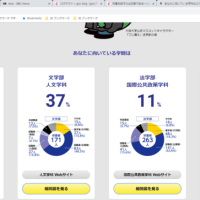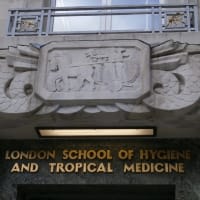BBC Climate change: Deadly African heatwave 'impossible' without warming 10 hours ago
By Matt McGrath
西アフリカで猛烈な熱波。人間活動由来の気候変動なしには説明つかないだろう―。…どうも本格的にマズいれレベルの熱波が来ている様子。
「A deadly heatwave in West Africa and the Sahel was "impossible" without human-induced climate change, scientists say.
Temperatures soared above 48C in Mali last month with one hospital linking hundreds of deaths to the extreme heat.
Researchers say human activities like burning fossil fuels made temperatures up to 1.4C hotter than normal.
A separate study on drought in Southern Africa said El Niño was to blame, rather than climate change.」
直接的にはエルニーニョが問題だという見解派よいとして、じゃあなんでまたここまでキッツいのかという説明は要るだろう。マリ首都バマコのとある病院では4月初旬、熱中症で102名ほどを看取ったと。…かなり行きましたね?
「In Bamako, the capital of Mali, the Gabriel Toure Hospital said it recorded 102 deaths in the first days of April.」
まあその、あらかた60以上の老人たちだそうで、そりゃあ抵抗力に欠けるわけでしょうが。
「Around half the people who died were over 60 years of age, and the hospital said that heat played a role in many of these casualties.」
もはや1.5C。夜間は2Cほども高い傾向にあるというわけで、そりゃあ力尽きますわ。
「According to the study, climate change meant temperatures were up to 1.5C warmer than normal in Mali and Burkina Faso, and made the night even hotter at 2C above the average. Across the region as a whole the five-day temperature was increased by 1.4C.」
2度も違うと言われると、それは全世界でその水準になるとものっそ熱波が来るぞ―という、そんな数字を思いう起こすわけである。
「With average global temperatures now around 1.2C warmer than pre-industrial levels, scientists say events like this recent one in Mali would occur once in 200 years. But if global temperatures breach 2C, powerful heatwaves would happen every 20 years.」
実際のところ本邦でも、かなり熱帯のスコールのような雨風が降るようになった感があり、個人的には南洋の日々を懐かしく思ってしまわなくもないが、まあ…本来、子供の頃に感じた気象よ戻れと言う気の方が大きい。
By Matt McGrath
西アフリカで猛烈な熱波。人間活動由来の気候変動なしには説明つかないだろう―。…どうも本格的にマズいれレベルの熱波が来ている様子。
「A deadly heatwave in West Africa and the Sahel was "impossible" without human-induced climate change, scientists say.
Temperatures soared above 48C in Mali last month with one hospital linking hundreds of deaths to the extreme heat.
Researchers say human activities like burning fossil fuels made temperatures up to 1.4C hotter than normal.
A separate study on drought in Southern Africa said El Niño was to blame, rather than climate change.」
直接的にはエルニーニョが問題だという見解派よいとして、じゃあなんでまたここまでキッツいのかという説明は要るだろう。マリ首都バマコのとある病院では4月初旬、熱中症で102名ほどを看取ったと。…かなり行きましたね?
「In Bamako, the capital of Mali, the Gabriel Toure Hospital said it recorded 102 deaths in the first days of April.」
まあその、あらかた60以上の老人たちだそうで、そりゃあ抵抗力に欠けるわけでしょうが。
「Around half the people who died were over 60 years of age, and the hospital said that heat played a role in many of these casualties.」
もはや1.5C。夜間は2Cほども高い傾向にあるというわけで、そりゃあ力尽きますわ。
「According to the study, climate change meant temperatures were up to 1.5C warmer than normal in Mali and Burkina Faso, and made the night even hotter at 2C above the average. Across the region as a whole the five-day temperature was increased by 1.4C.」
2度も違うと言われると、それは全世界でその水準になるとものっそ熱波が来るぞ―という、そんな数字を思いう起こすわけである。
「With average global temperatures now around 1.2C warmer than pre-industrial levels, scientists say events like this recent one in Mali would occur once in 200 years. But if global temperatures breach 2C, powerful heatwaves would happen every 20 years.」
実際のところ本邦でも、かなり熱帯のスコールのような雨風が降るようになった感があり、個人的には南洋の日々を懐かしく思ってしまわなくもないが、まあ…本来、子供の頃に感じた気象よ戻れと言う気の方が大きい。

























※コメント投稿者のブログIDはブログ作成者のみに通知されます